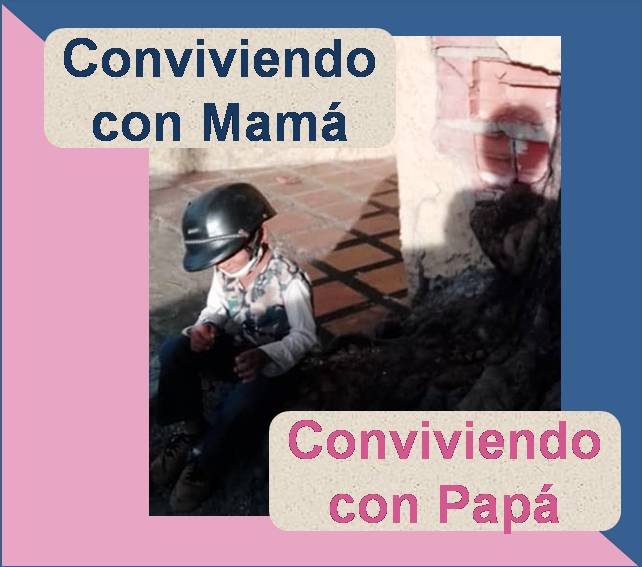
Ayer hablaba con una amiga, al preguntarle por uno de sus nietos, me comentó que las cosas no iban muy bien, que el niño, de ocho años, vivía una semana con el papá y otra semana con la mamá. Observaba con preocupación la inestabilidad y confusión que la situación producía en el niño.
Cuando le toca la semana con el papá también le corresponde a ella porque su hijo vive con ella, así que de manera muy cercana vive la situación. Papá quiere aprovechar su semana para formar hábitos y costumbres en el niño, distintas a las que quiere inculcar mamá en su semana, las tareas escolares se hacen de maneras diferentes en ambas casas, el niño en ocasiones manifiesta con rebeldía que —¡Así no lo hace mi mamá!— recibiendo por respuesta —Así lo hace papá y así lo vas a hacer— Esta resumida historia da para hablar sobre muchos puntos, a continuación te comento algunos.
Conviviendo con mamá/ conviviendo con papá
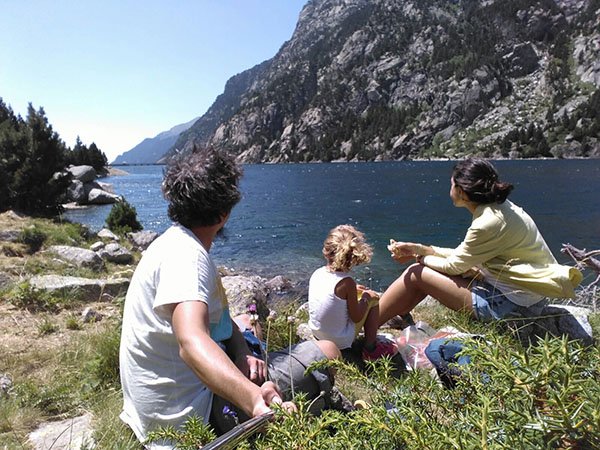
A nadie se le puede pedir que viva con una persona a la que no quiere, con la que no desea convivir, entre otras razones, por eso existe la figura legal del divorcio, sus causales son variadas y para no entrar en detalles la más comúnmente utilizada es la incompatibilidad de caracteres. Hasta allí el asunto es entre adultos, cada uno buscará la mejor manera de afrontar las consecuencias emocionales y materiales que produce una separación.
Otro asunto bien delicado y diferente son los niños habidos en esa unión. Desde el aspecto legal en la mayoría de los países la patria potestad es ejercida por ambos padres y se pierde por razones graves y muy puntuales como son las drogas o la incitación al hijo a realizar actos en contra de la moral.
La custodia, se refiere a la convivencia diaria, con quién va a vivir el hijo. La custodia tiene dos modalidades: compartida entre ambos padres o monoparental donde el niño vive exclusivamente con uno de los progenitores, sin que ello signifique que el otro padre no pueda ejercer todos sus derechos, deberes y sobre todo compartir con sus hijos. Por lo general los padres se ponen de acuerdo en este sentido sin necesidad de recurrir a los tribunales.
Cada día, con mayor frecuencia, vemos papás más comprometidos con la paternidad y eso es excelente. Así vemos casos donde los niños viven dos días de la semana con papá, tres con mamá y un fin de semana alterno con cada uno o como en el caso planteado, una semana con cada progenitor. Muy bien, un acuerdo entre adultos, justo, equitativo y todos conformes.
Pero… ¡Ya va, Ya va! ¿Alguien pensó en los niños? En sus necesidades, estabilidad, afectividad. Tómate un momento y comienza a imaginarte que cada dos días tienes que preparar la maleta porque vas a pasar tres días en tu hogar, pasado esos tres días tienes que preparar nuevamente la maleta porque vas a pasar dos días en tu hogar, es decir, ¿Cuál es tu hogar, dónde está tu cama, tu cuarto, tu espacio, tus cosas?, ¿A qué le das calor, dónde te refugias? Ahora lleva eso a la mente de un niño, lo más probable es que no pueda hacerse esas preguntas pero, siente la incertidumbre e inestabilidad de su mundo. Algo así como: estoy aquí, estoy allá, no estoy en ningún lado.
Necesidades de los niños
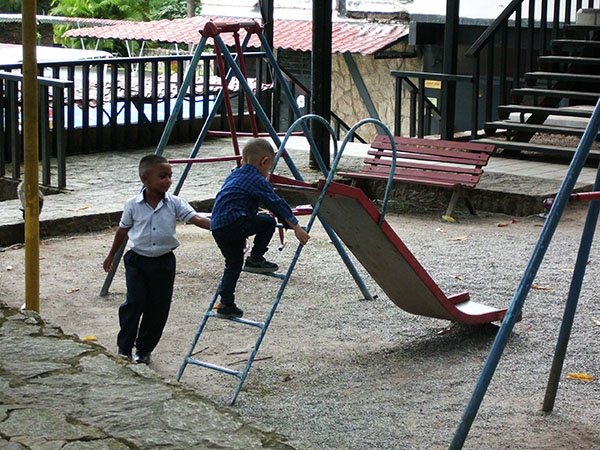
Los niños aparte de sus necesidades básicas, tienen otras necesidades que deben ser cubierta, algunas de ellas son:
1.- Sentir el amor de los padres: Para los niños es importantísimo sentir que sus padres lo aman y más cuando se producen cambios que afectan su estabilidad emocional con es el divorcio. De alguna manera tenemos que hacerles sentir que la separación es de mamá y papá y aunque ellos son afectados, el amor, de los papás hacia ellos, está intacto.
2.- La seguridad: En este punto es relevante hacerle sentir al niño que aunque su mundo ha cambiado no se ha derrumbado, mientras más podamos mantener la cotidianidad mejor será, los movimientos de acciones bruscas generan angustias e incertidumbre, que ya de entrada, el mismo proceso de separación es difícil, no lo hagamos más difícil tomando decisiones sin pensar en las consecuencias que traerá a los niños.
3.- Fijar criterios comunes: Por mucha incompatibilidad que haya entre los padres, aquí no se trata de ellos, el niño requiere de pautas comunes, de consolidar los mismos hábitos en ambos hogares, tener unos lineamientos básicos que le permitan al niño saber cómo tiene que desenvolverse en cualquier momento o lugar, no es que con mami me comporto de una manera y con papi de otra, llevándolo a ajustarse a los requerimientos particulares de cada uno y a tratar de complacer a ambos.
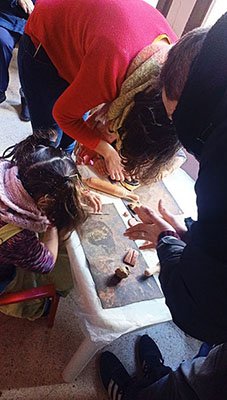
Sentir que se tiene un hogar es proporcionar un entorno de estabilidad a los niños. Los cambios son una realidad y los niños, como buenos humanos, se adaptan a ellos, posiblemente vivir esa doble vida los lleve a ser adultos con una mentalidad más amplia o ser personas que sepan desenvolverse con mayor facilidad en entornos inestables, eso no lo sabremos sino con el pasar del tiempo, por lo pronto, mientras viven su infancia, como padres, pongámonos en sus zapatos quizás eso nos ayude a comprender las dimensiones de su sentir.
Como dice la amiga @parauri en su columna: “Recordar nuestra infancia, pues así podemos entender lo que sienten, piensan, sufren y anhelan los niños, con cada mal o buen trato que reciben de nosotros los adultos”.

In English
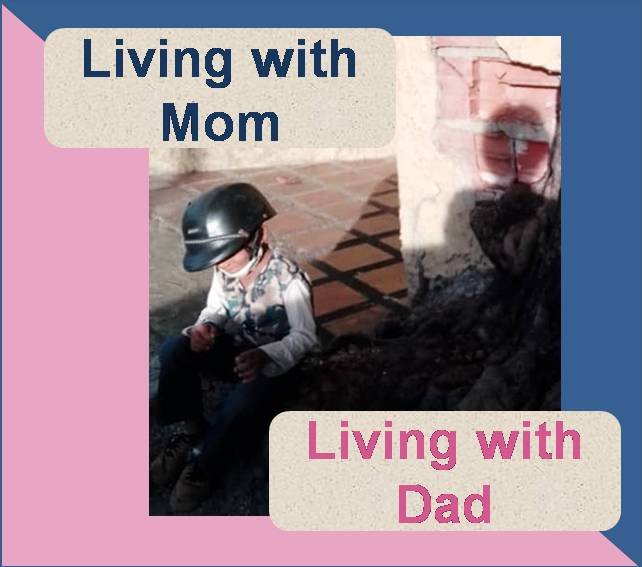
Yesterday I was talking to a friend of mine, and when I asked her about one of her grandchildren, she told me that things were not going very well, that the eight year old boy was living one week with his father and another week with his mother. She observed with concern the instability and confusion that the situation produced in the child.
When he gets his week with his father, it is also her week because her son lives with her, so she is very close to the situation. Dad wants to take advantage of his week to form habits and customs in the child, different from those that Mom wants to instill in her week, homework is done in different ways in both houses, the child sometimes says with rebellion that -That's not the way my mom does it!- receiving as an answer -That's the way Dad does it and that's the way you are going to do it- This short story gives to talk about many points, here are some of them.
Living with mom/ living with dad

Nobody can be asked to live with a person they do not want, with whom they do not want to live, among other reasons, that is why there is the legal figure of divorce, its causes are varied and not to go into details the most commonly used is the incompatibility of characters. Up to there the matter is between adults, each one will look for the best way to face the emotional and material consequences that a separation produces.
Another very delicate and different matter is the children born in this union. From the legal aspect, in most countries the parental authority is exercised by both parents and is lost for serious and very specific reasons such as drugs or inciting the child to perform acts against morality.
Custody refers to the daily cohabitation, with whom the child will live. Custody has two modalities: shared between both parents or single-parent custody where the child lives exclusively with one of the parents, without this meaning that the other parent cannot exercise all his rights, duties and above all share with his children. Generally parents agree on this without the need to resort to the courts.
Every day, with greater frequency, we see fathers more committed to fatherhood and that is excellent. Thus we see cases where the children live two days a week with dad, three days a week with mom and an alternate weekend with each one or, as in this case, one week with each parent. Very well, an agreement between adults, fair, equitable and all in agreement.
But... There you go, there you go! Has anyone thought about the children? Their needs, stability, affectivity. Take a moment and start to imagine that every two days you have to prepare your suitcase because you are going to spend three days at home, after those three days you have to prepare your suitcase again because you are going to spend two days at home, that is, what is your home, where is your bed, your room, your space, your things, what do you keep warm, where do you take refuge? Now take that to the mind of a child, most likely you can't ask yourself those questions but, you feel the uncertainty and instability of your world. Something like: I'm here, I'm there, I'm nowhere.
Children's needs

Children apart from their basic needs, have other needs that must be covered, some of them are:
1.- To feel the love of their parents: For children it is very important to feel that their parents love them and even more so when there are changes that affect their emotional stability, such as divorce. Somehow we have to make them feel that the separation is from mom and dad and although they are affected, the love, of the parents towards them, is intact.
2.- Security: At this point it is relevant to make the child feel that although their world has changed it has not collapsed, the more we can maintain the daily routine the better it will be, the sudden movements of actions generate anguish and uncertainty, that already from the beginning, the same process of separation is difficult, let's not make it more difficult making decisions without thinking about the consequences that it will bring to the children.
3.- Set common criteria: No matter how much incompatibility there is between the parents, here it is not about them, the child requires common guidelines, to consolidate the same habits in both homes, to have basic guidelines that allow the child to know how to behave at any time or place, it is not that with mommy I behave one way and with daddy in another, leading him to adjust to the particular requirements of each one and to try to please both.

To feel that you have a home is to provide an environment of stability for children. Changes are a reality and children, as good humans, adapt to them, possibly living that double life will lead them to be adults with a broader mentality or be people who know how to manage more easily in unstable environments, that we will not know but with the passage of time, for now, while living their childhood, as parents, let's put ourselves in their shoes maybe that will help us understand the dimensions of their feelings.
As the friend @parauri says in her column: "Remember our childhood, because that way we can understand what children feel, think, suffer and yearn for, with every bad or good treatment they receive from us adults."

Translated with www.DeepL.com/Translator (free version)
Fuente de imágenes: Archivo personal
 )
)

MIS REDES SOCIALES






Te invito a apoyar este proyecto como witnes y a formar parte de esta gran comunidad uniéndote a su Discord en el siguiente enlace:
Discord de la comunidad Cervantes




Oye amiga qué situación tan dura para un niño, los adultos no evaluamos eso en línea general, en mi caso fue distinto aguante muchas cosas con mi pareja por amor a mis hijos, cuando ya estaban adultos simplemente tome la desicion de irme y comenzar una nueva relación, aun asi los afectó mucho.
Si es difícil y cada caso, aunque parezca distinto, en el fondo los hijos resienten las separaciones. en mi caso cuando me separé del papá de mi hijo el entendió que también se divorcio del niño, manejar esas ausencias no es del todo fácil. Saludos😊
Una vez precencié un juicio dónde los papás peleaban la custodia de los niños y de verdad creo que es un proceso muy duro para ellos. Esa inestabilidad emocional es difícil de manejar aunque he visto que muchos padres tratan de conciliar de la mejor manera posible. Estos casos lo repetimos a diario amiga, algunos con finales felices en otros casos no tanto. Gusto en leerte!
Si hay procesos que son desmoralizantes para todos, nadie quiere ceder y los niños pasándola muy mal. Saludos😊
Ay amiga que publicación tan interesante. Gracias por mencionarme y a mi columna. Este tema es tan duro y lo digo, no porque lo suponga sino porque lo viví, con presencia en tribunales y toda la cosa y es terrible. Te marca, aunque los adultos consideren estar haciéndolo muy bien. Meto la mano por mi madre quien fue una víctima de mi padre. Durante la lectura parecía estarme viendo. El niño está entre dos corrientes de aguas y que difícil se hace la infancia y de allí para adelante todo lo demás. La vida queda marcada y lo más grande es que el niño ama ambos padres. Se hace toda la tragedia de la separación por la felicidad de los hijos y los hijos sufriendo igual o más que estando juntos los padres. Que complejo es todo.
Gracias por tocar este tema de la separación entre los padres y el estilo de convivencia al que deben someterse los niños.
Mi abrazo virtual amiga ♥
The rewards earned on this comment will go directly to the person sharing the post on Twitter as long as they are registered with @poshtoken. Sign up at https://hiveposh.com.